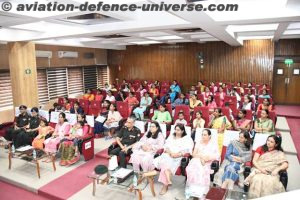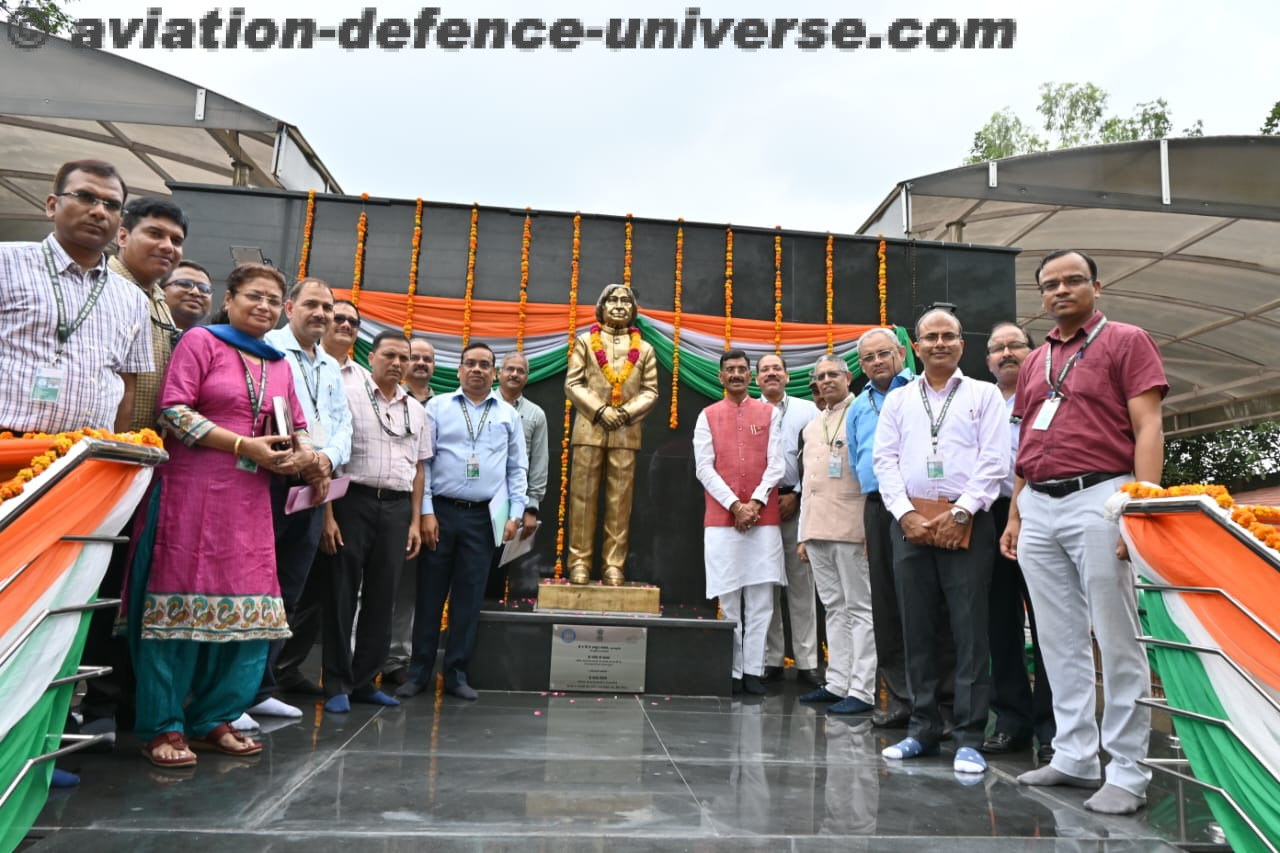 New Delhi. 02 October 2023. Keeping in sync with the Government’s initiative on menstrual hygiene to promote women’s health, ‘Menstrual Health- One more step towards women’s health’, the Army Hospital (R&R) Delhi Cantt organized a menstrual health awareness programme ‘Mahawari mein Swachchta’ on 01 Oct 2023. A lecture cum demonstration was organized at Army Hospital (R&R) and senior officers of AFMS and women from all walks of life, including adolescent girls participated in the event.
New Delhi. 02 October 2023. Keeping in sync with the Government’s initiative on menstrual hygiene to promote women’s health, ‘Menstrual Health- One more step towards women’s health’, the Army Hospital (R&R) Delhi Cantt organized a menstrual health awareness programme ‘Mahawari mein Swachchta’ on 01 Oct 2023. A lecture cum demonstration was organized at Army Hospital (R&R) and senior officers of AFMS and women from all walks of life, including adolescent girls participated in the event.
The social taboos and myths associated with menstruation, medical implications of good menstrual hygiene, and simple but effective ways to deal with menstrual issues were highlighted during the event. The lack of proper menstrual hygiene can be the source of genital tract infections which can later lead to infertility. It was also discussed how the ignorance about simple facts about menstrual hygiene can stall the overall growth of young girls, and become a hindrance to them getting a good education, and society as a whole needs to change its attitude about menstruation which is essentially a physiological process.
 As a part of the information and awareness campaign, the Department of Obstetrics and Gynaecology at Army Hospital (R&R) has prepared educational material which was distributed to the participants. The education stalls were put up highlighting social and medical issues related to menstrual hygiene, including educating the men in society and the need for community support in India about this issue. The health talk emphasized the importance of seeking early gynecological consultation when women face menstrual abnormalities.
As a part of the information and awareness campaign, the Department of Obstetrics and Gynaecology at Army Hospital (R&R) has prepared educational material which was distributed to the participants. The education stalls were put up highlighting social and medical issues related to menstrual hygiene, including educating the men in society and the need for community support in India about this issue. The health talk emphasized the importance of seeking early gynecological consultation when women face menstrual abnormalities.
One of the notable initiatives discussed during the event was use of Menstrual Cups as an alternative to sanitary pads. “The Menstrual Cup in not only cost-effective but also environment friendly, easy to use and maintain”, said Lt Gen Ajith Nilakantan, Commandant Army Hospital (R & R). The menstrual cup is reusable and very convenient for office-going women and women in the armed forces. It can be used by both married and unmarried women with equal ease. It also does not lead to the generation of bio-waste; hence saving the environment from tonnes of waste generated by the more commonly used sanitary pads.


























































































































